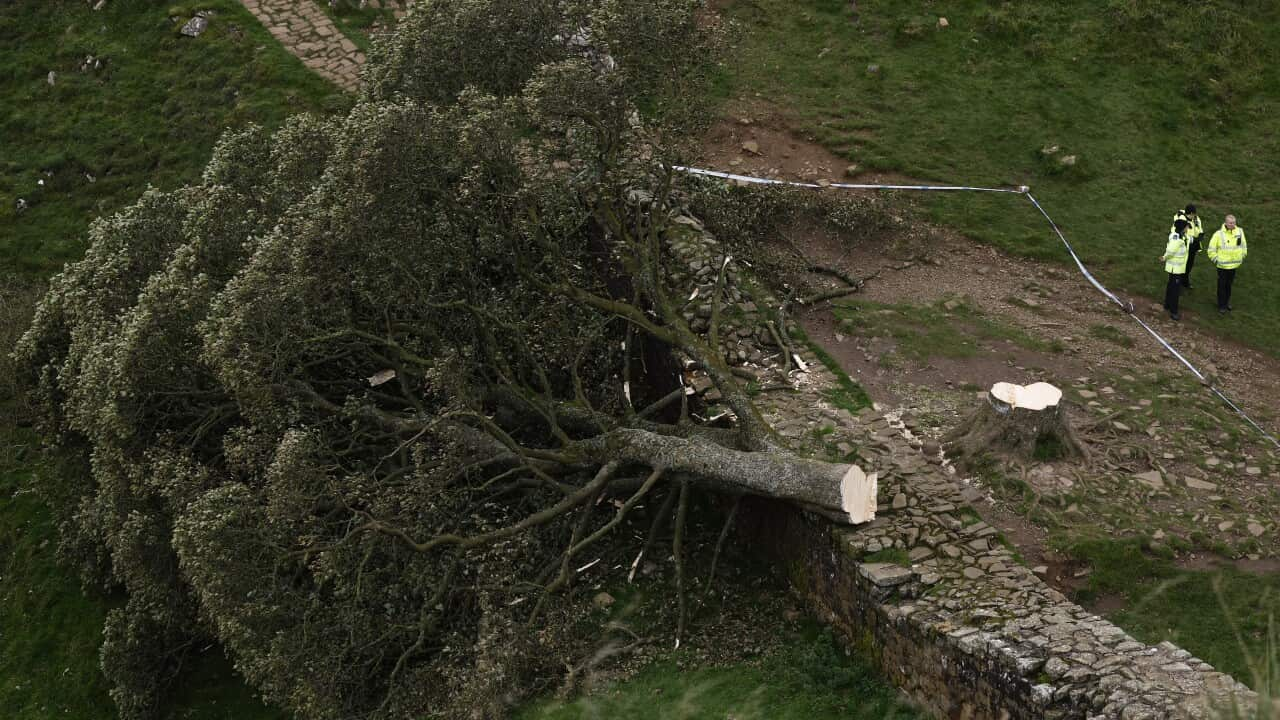For 16 years, Srey Mom has run a roadside restaurant just a short distance from Angkor Wat, the largest temple complex in the world and Cambodia’s top tourist attraction.
The ancient ruins of the Khmer empire have drawn more than 600,000 foreign visitors since the start of this year, generating just under US$30 million ($46 million) in ticket sales. The opening of the Siem Reap Angkor International Airport in October is expected to see those figures increase even further.
Locals living inside the 400-square-kilometre historic site have relied on rice farming and, like Srey, on tourism for a living.
But soon their homes and livelihoods will be demolished.
Cambodia’s government is removing around 10,000 families that live and work inside the Angkor Wat archaeological park. Many have been there for generations. But the authorities consider them illegal occupants.
APSARA, the Cambodian national government authority that manages Angkor Wat and is overseeing the relocations, says the families must be relocated, their houses and businesses torn down, for Angkor Wat to retain its UNESCO World Heritage listing.
“They do not possess the legal rights to be here,” APSARA deputy director-general Long Kosal said. “They're cutting down trees as well, and the rubbish they're producing, we cannot manage it. So they're contributing to the degradation of the universal values of the site.”

The ancient Angkor Wat temple complex attracts more than two million tourists each year. Source: AFP / Tang Chhin Sothy/AFP via Getty Images
Srey says she’s had to take out a US$40,000 ($62,000) bank loan to build a new house at the main resettlement site, Run Ta Ek, 30 kilometres from Angkor Wat. There’s no high school for her eldest daughter there, and Srey is worried about how she’ll be able to earn money to support her family.
“We will have to go because we cannot protest,” Srey told SBS. “They have given us land there only, but not a house. So I need a loan to build a house. If we eventually cannot keep asking to stay here (at Angkor Wat), then we will have to go.”
In a new report released this week, Amnesty International said the Cambodian government’s relocation program ‘amounts to forced evictions … carried out on a massive scale and a gross violation of international human rights law.’
“We have spoken to a lot of people who have not been given a choice, have been asked to leave, and because they understood that they didn't have a choice are leaving,” Amnesty International lawyer and deputy regional director of Southeast Asia Montse Ferrer said.
“That does not amount to volunteering to leave, that amounts to leaving because you have no other option.”
The Cambodian government insists that residents are not being forced to leave and that it's following the advice of UNESCO to preserve the heritage of the Angkor Wat site.
“This is not a matter of human rights, but this is a matter of supporting the heritage. Every year, member states need to provide a conservation report to UNESCO. So every year we get the advice, the recommendation from UNESCO,” Kosal said.
“And that illegal buildings should be taken into consideration, taking into actions that it must be stopped. It can no longer continue. And that is the message which we got from UNESCO”.

APSARA's Long Kosal says Cambodia's government is not forcing people to leave. Source: SBS / Aaron Fernandes
‘Forced evictions’
In its latest report, Amnesty International says it interviewed more than 100 residents between March and June 2023, almost all of whom described being evicted or pressured to leave Angkor following intimidation, harassment, threats and acts of violence from Cambodian authorities.
Amnesty International criticised UNESCO in its report for not condemning the relocations.
“We have not seen UNESCO take a strong stance. They have said repeatedly that they have not asked for the relocations. But at no point, have they recognised or acknowledged that forced evictions are taking place,” Ferrer says.
According to Amnesty International’s report, UNESCO’s World Heritage Centre told Amnesty International that the actions of a government are not the responsibility of UNESCO, “even if a Member State were to justify its actions by invoking (UNESCO).”
UNESCO told SBS Dateline in August that it did not ask Cambodian authorities to relocate people living near Angkor Wat, but that it has no authority to tell the government what it can and cannot do.
However, since Amnesty International published its latest report this week, UNESCO has now called on the Cambodian government to halt its program.
In a statement to SBS Dateline this week, UNESCO said it “calls on the Cambodian authorities to make an explicit commitment not to carry out forced evictions in Angkor and to ensure that all necessary corrective measures are put in place urgently to ensure full respect of all human rights for those communities concerned with the support of the International Coordinating Committee for Angkor.”
UNESCO also ordered Cambodia to submit a new report on the state of conservation of the Angkor site by 1 February 2024 and to address Amnesty’s allegations in it.
Relocation sites
To convince residents of the Angkor archaeological site to move, Cambodia’s government is offering a support package, which includes a plot of land, corrugated iron to build a house, and welfare payments.
SBS Dateline visited the main relocation site at Run Ta Ek in August and found some of the land plots lacked electricity, running water and sewerage, while others had been developed into fully functioning homes. APSARA told SBS Dateline that around half of the communities facing eviction have already been relocated.

Locals make an income in and around Angkor Wat any way they can. Source: SBS / Aaron Fernandes
“They are being provided land, with the land title, and financial support on a monthly basis. The government has put in a lot of infrastructure. And this is very important, people that have been living in Angkor illegally are able to have land legally,” Kosal of APSARA said.
Some families interviewed by Amnesty who owned rice paddies at Angkor said the new land plots were too small and therefore unsuitable for farming.
Many of the evictees interviewed by SBS Dateline at the new site also complained about losing work and not having the means to essentially start from scratch.
“I have a lot of difficulties. I don’t have money to build a house, and my husband has lost his job. He used to do labouring near Angkor Wat,” evictee Tuy Ran said.
Even those who were willing to move said the lack of employment opportunities at Run Ta Ek would lead many to try to return to work near Angkor Wat.
“All the people have their work there and they need work. Nowadays, everyone is facing cost of living pressure and they can hardly manage their daily living costs,” a local man said.













